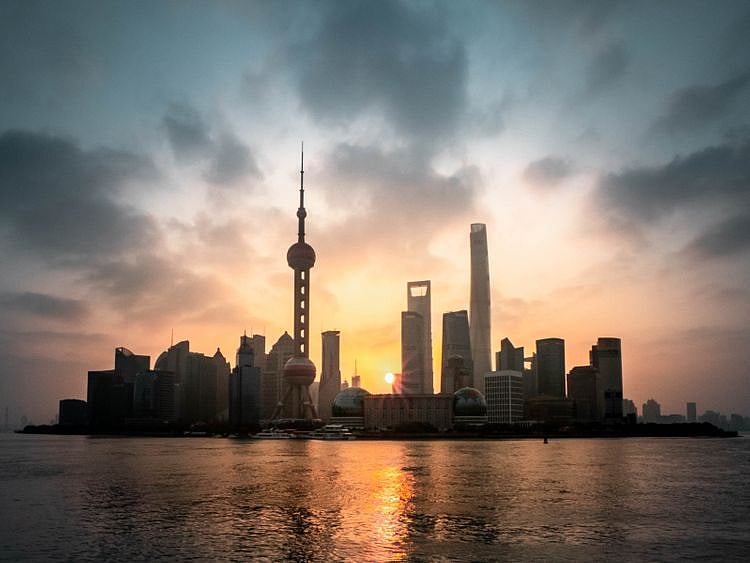“Could China’s economy collapse?” was the title of an October 15 article published by QUARTZ magazine. The article makes an ominous case of a Chinese economy and its impact.
Such articles, however, are motivated by politics, not decipherable truth. In fact, the above is one of numerous reports appearing in recent weeks in Western mainstream media, all motivated by recently published economic indicators pointing to less-than-expected growth in various sectors of the Chinese economy, especially in the field of construction.
It is understandable that the volatility of global markets could instigate immediate concern among economists worldwide, especially when the economic output of a country the size of China — the world’s overall fastest-growing and second-largest economy — slows, however briefly.
West’s misleading references
Compare the West’s misleading references to the manufactured ‘crisis’ in China to the actual fuel crisis in the UK, where a collective panic led to millions of people rushing to buy petrol and diesel fuels, resulting in massive disruptions, shortages of supplies and traffic jams.
Western media downplayed the unprecedented crisis in the UK, as if it was merely the outcome of simple bureaucratic mismanagement or a mere miscalculation pertaining to supply and demand. Imagine if the equivalence of the UK’s dystopian scenes had taken place in China. Media analyses would truly have been entirely different.
However, the anti-China media hype and propaganda, which has been on the rise since the beginning of Trump administration’s term in office, is a double-edged sword. While Western media coverage, which habitually portrays China in a bad light, benefits greatly from downgrading China’s status, Western economies will be the first to pay the price should China enter a long-term economic slow down.
Unlike the Soviet Union, whose economy had existed in near-total isolation of Western markets, the Chinese economy is closely intertwined with the global economy, from Europe to North America, to Africa and beyond. The saying ‘if China sneezes, the world catches a cold’ has never been truer.
Contributions to Global Growth
According to a recent Bloomberg illustration, displaying “Contributions to Global Growth” by various leading economic powers, China, especially starting 2010, served the role of the backbone of the global economy. The year 2020 was particularly interesting, as only China sustained a significant growth above the zero-percentage point.
The centrality of China as the main fuel of global economic growth presents the West with an impossible dilemma. On the one hand, the Western powers want to ensure that China does not enhance its global political power while, on the other hand, they continue to rely on the Chinese economic miracle to keep their own economies afloat.
It should come as no surprise that, according to the European Commission, “China is the EU’s biggest source of imports and its second-biggest export market”.
As US Defense Secretary Lloyd Austin heads to Brussels to join his first in-person Nato defence ministers’ conference, the Washington Post reported that Austin was joining the highly-influential meeting “with China on his mind”.
China's constant improvements
What worries Austin and the US military more than the vast capabilities and constant improvements of its Chinese counterpart, is Nato’s supposed failure to appreciate the imaginary ‘China threat’. Indeed, despite the US’ repeated warnings about China’s military ascendancy, Europe and most Nato members remain largely nonchalant.
Simply put, Washington wants Europe to shoot itself in the foot. By isolating China, Europe would consequently isolate itself, thus curtailing its own economic growth and, by extension, slowing down the entire global economy.
Considering the trust deficit between the EU and the US, resulting from the instability of the Trump years, Biden’s failure to completely change course, and the more recent Afghanistan withdrawal debacle, chances are Europeans will not be following in Washington’s footsteps this time around, as they have during the height of the US-Soviet Cold War.
Beijing's rise as a global superpower
The above assertion has been demonstrated, time and again, in real numbers, the latest of which was a survey by the European Council on Foreign Relations, which polled Europeans in twelve different EU member states. Most Europeans, 59 per cent, the survey showed, felt that their countries are not involved in a cold war with China.
Foreign Policy magazine reported on the findings with the following title: “Europeans Want to Stay Out of the New Cold War”. Chances are neither Western media alarmists nor Austin’s interventions at the Nato conference will change this reality.
China’s economy is likely to continue experiencing its ebbs and flow — but, ultimately growth — in the foreseeable future. On their own, such fluctuations will unlikely change the narrative of the determined Chinese rise as a global superpower, or that of the unmistakable Western decline. The sooner we acknowledge this reality, the better.
Ramzy Baroud is a journalist and the editor. He is the author of five books.
Sign up for the Daily Briefing
Get the latest news and updates straight to your inbox
Network Links
GN StoreDownload our app
© Al Nisr Publishing LLC 2026. All rights reserved.
